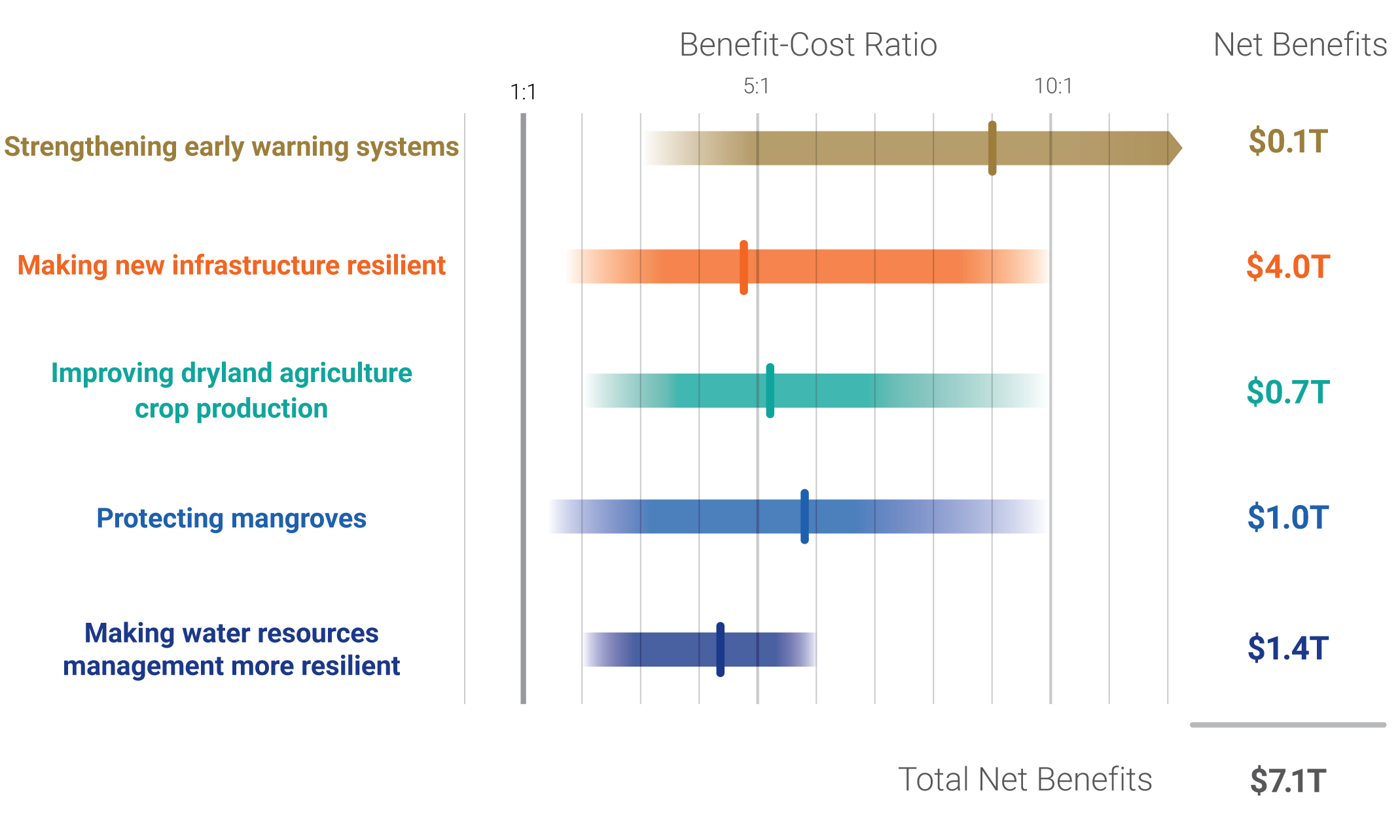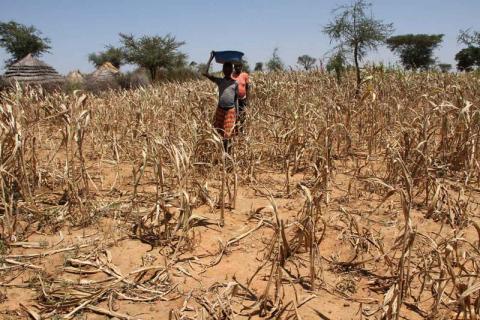Climate change is upon us, and its impacts are getting more severe with each passing year.
Global actions to slow climate change are promising but insufficient. We must invest in a massive effort to adapt to conditions that are now inevitable: higher temperatures, rising seas, fiercer storms, more unpredictable rainfall, and more acidic oceans.
We are not starting from a standstill. There are many bright spots where adaptation efforts have begun—but we need more urgency, innovation, and scale.
Adaptation is not an alternative to a redoubled effort to stop climate change, but an essential complement to it. Failing to lead and act on adaptation will result in a huge economic and human toll, causing widespread increases in poverty and severely undermining long-term global economic prospects.
The good news is that adaptation, done right, will lead to better growth and development. It will also protect nature, reduce inequalities, and create opportunities.
We can do it.

Adaptation can deliver high rates of return, bringing multiple benefits to people and the economy
Our research finds that investing $1.8 trillion globally in five areas from 2020 to 2030 could generate $7.1 trillion in total net benefits. The five areas we consider are early warning systems, climate-resilient infrastructure, improved dryland agriculture, mangrove protection, and investments in making water resources more resilient. This represents only a portion of the total investments needed and total benefits available.
Read original article here




